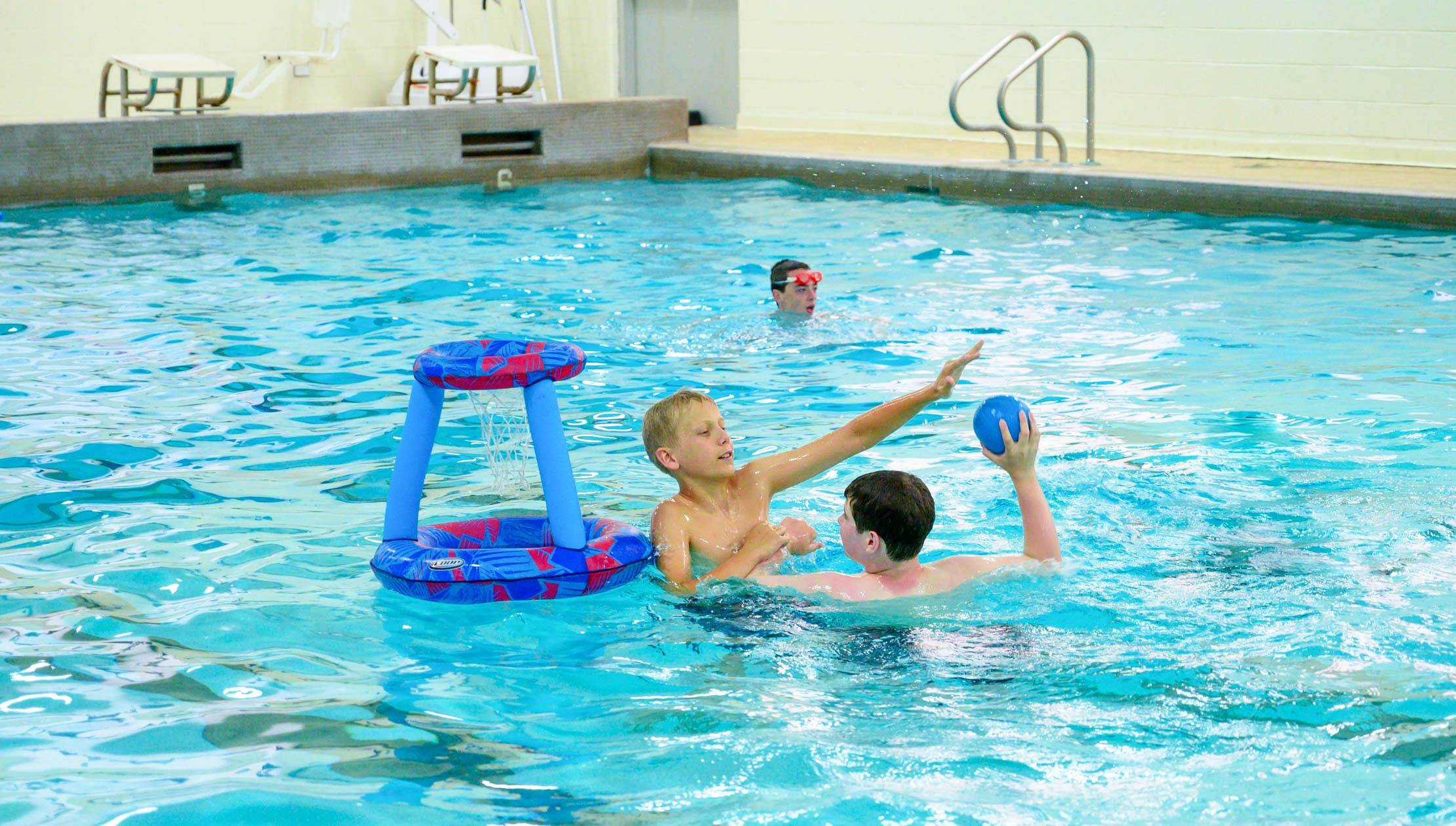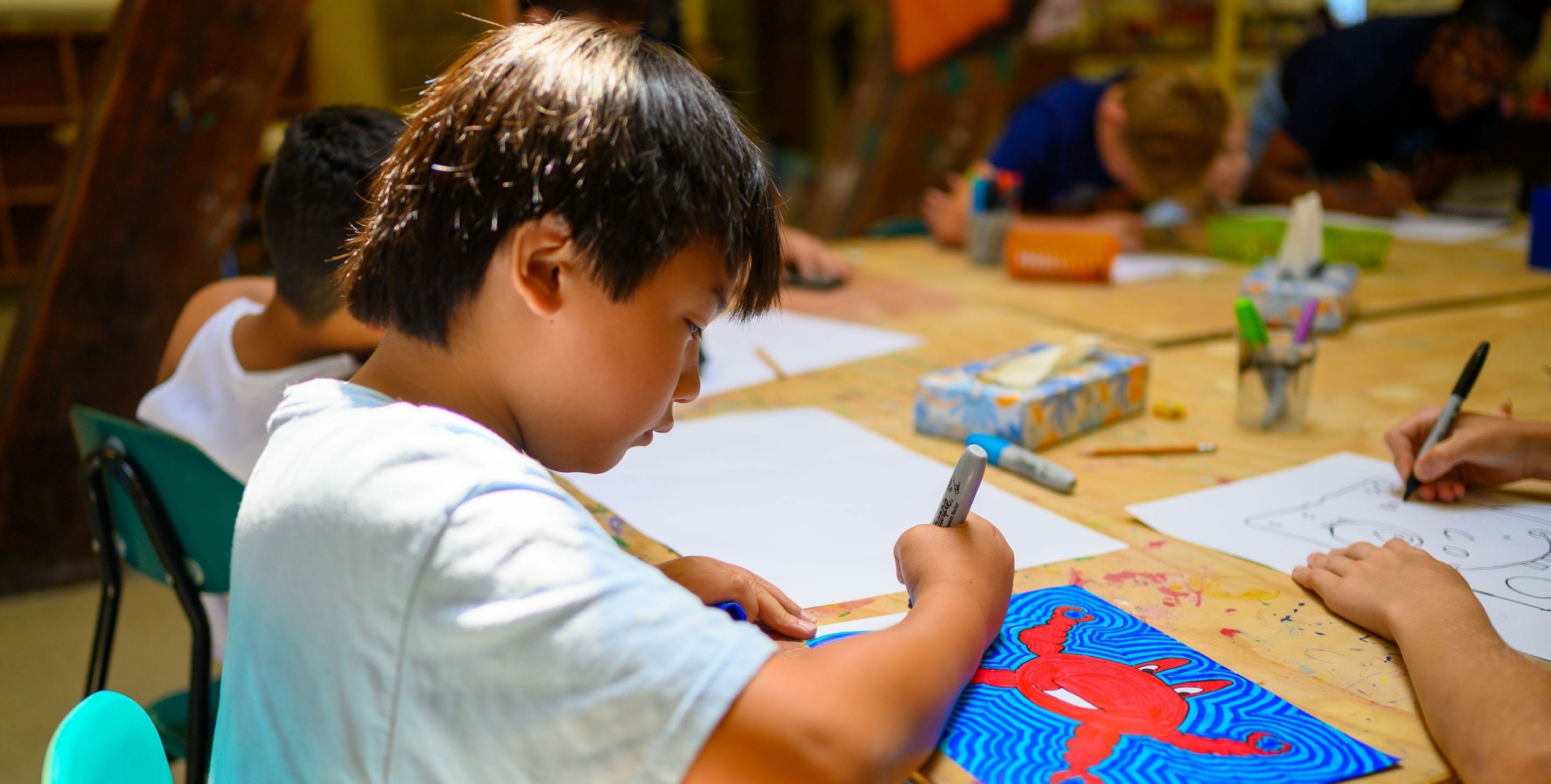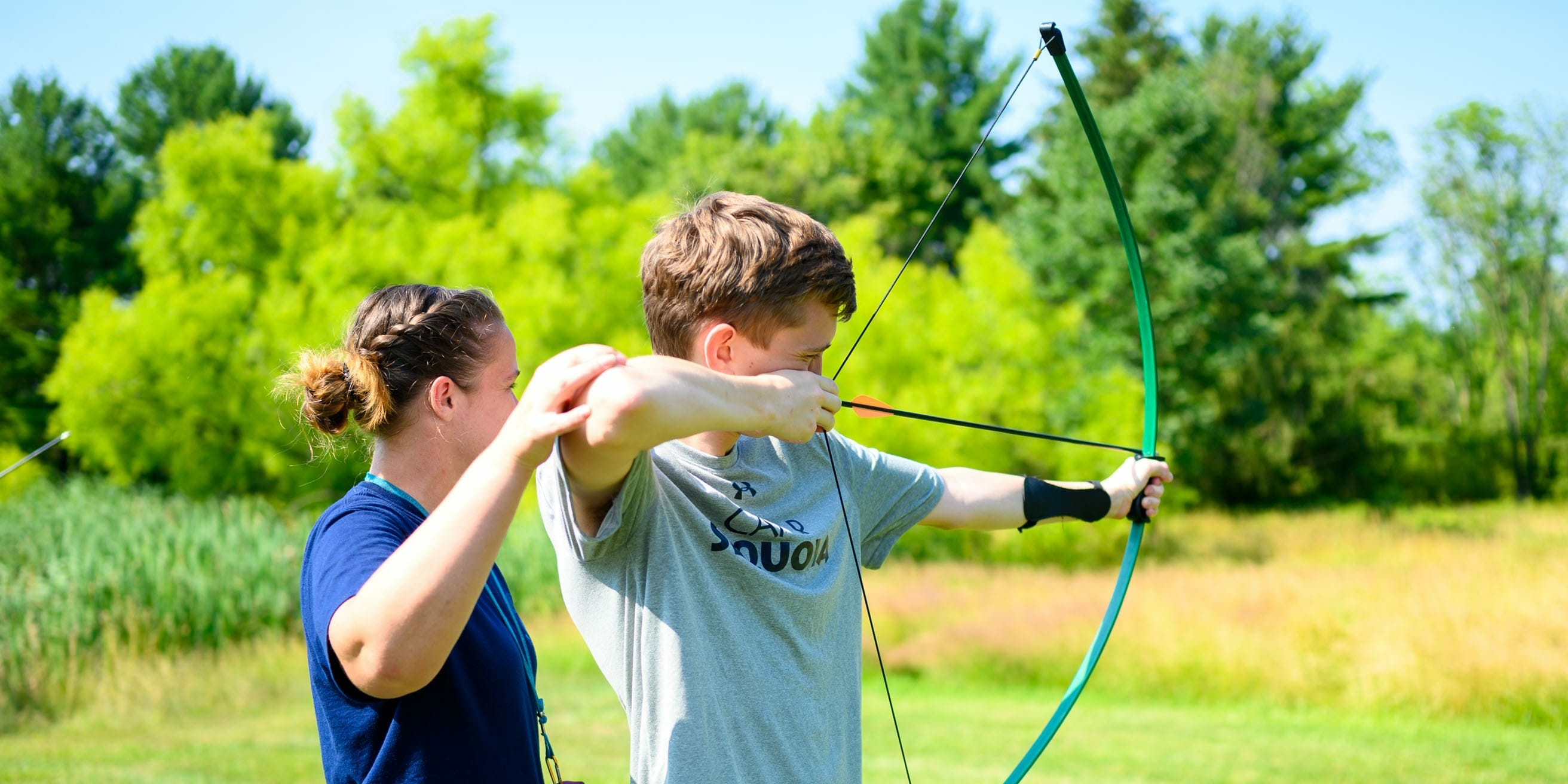The camp allows children of a wide variety of ages to work on their individual goals while enjoying the perks of the traditional Summer camp experience.

About Camp Sequoia
Camp Sequoia is an overnight summer camp for boys ages 7-17 and girls 9-16 to experience social skills success in a dynamic and nurturing environment. Many of our campers are diagnosed with ADHD (Attention deficit hyperactivity disorder). Our camper population also includes those who present with social anxiety, learning differences (which affect social skills development), or may not have a formal diagnosis yet present with social learning needs. Our innovative program integrates building Frustration Tolerance with Social Learning theory to help campers develop their social skills through a FUN active, traditional camp program.

Camp Sequoia is designed for children and teenagers with ADHD and other similar diagnoses who do not need the level of support offered at special needs overnight camps yet need a different experience than a traditional overnight camp can offer. Our 2:5 staffing ratio allows our campers to have fun and grow in a safe and supportive camp experience.
All our campers present with average to above average cognitive ability. The majority of our campers attend public schools where they are in mainstream education for all or a majority of the day. Some attend parochial schools, Jewish day schools, or private schools for students with learning differences. Our campers come from across the U.S.A. and internationally to be with us in the summer.
Parents choose Camp Sequoia because the experience we provide is much more than a summer camp. It is truly an investment in their child’s future success. The mission of Camp Sequoia is to help our campers have a great time while developing their social cognition (how to think in a social context and apply socially related skills). Without strong social cognition it is difficult to be successful in life. Through integrating the social cognitive and frustration tolerance concepts and language into all aspects of camp life we create a full immersion into a fun, active social learning experience. Camp Sequoia is the first overnight summer camp designed specifically for children diagnosed with ADHD who need help developing their social skills.

The Camp Sequoia Approach
Camp Sequoia’s holistic approach to working with campers who have social skill needs involves several key factors which work together in the camp setting. These include:
Creating A Fun And Safe Environment That Facilitates Social Growth
Our philosophy as well as our experience is that children are most receptive to learning when they feel safe, are engaged intellectually and are having fun. Camp Sequoia is presented to our campers as a place to make new friends, have fun and learn some new things. “Learning social” as we call it at camp is just part of our camp day.
Utilizing the basic concepts & language of Social Cognition and Frustration Tolerance
Through integrating these basic concepts and language into every camp activity and utilizing every “teachable moment”, we help campers develop their social cognitive and frustration tolerance skills experientially. Additionally, all campers participate in an inquiry-based Social Skills group with campers who share a similar social-communication profile.
My son is managing his anger better than ever, asking for what he wants in expected ways for an 11 year old, taking no for an answer, managing his frustration, and pushing boundaries less.
An overnight camp for kids who would not fit in at a special needs camp, yet need more support than traditional overnight camps can offer
Our campers are a unique group of kids who need the structure, consistency and social learning support we provide yet would not fit in with the population found at special needs overnight camps. Camp Sequoia is proud to fill an under-served need for our camper population.
A Same-Age Peer Relationship-Centered Approach
Camp Sequoia is divided up into age groups called “Divisions”. For our boy’s program, The Freshman division are campers ages 7-9, Juniors are campers age 10-11, Inters are campers ages 12-13, Centers are campers ages 13-14, Seniors are campers ages 14-15, and the L.I.T.s (Leaders- in-Training) are campers ages 16-18. Campers live with and participate in all activities with their division. For our girl’s program, we have four age groups: the Dawns (9-11), Junipers (12), Willows (13-14), and the Twilights (15-16).
Many of our campers gravitate towards younger children (who they find easier to relate with) or adults who find our campers to be engaging and charming. Many adults (including professionals) have difficulty understanding how a child who presents so well to them has trouble connecting with their same age peers. We want our campers to be able to engage with same-age peers and develop their social skills in order to learn how to make and retain friends and become social successful.
Consistency and Routine
Our highly structured schedule has minimal changes from week to week, and campers are provided with visual aids (such as their own schedules and checklists) to help them know what to expect. Most Sequoia campers come to camp for our full, 6-week season, while others come for one of our 3 week sessions. This consistency allows our campers to become fully immersed in the social learning environment we create and gives them ample time to form relationships with same-age peers.
Small Group Instruction
Activities are conducted in small groups in order for campers to receive individualized attention and to help them focus on the activity at hand. Our staff to camper ratio is 2:5.
Parent Collaboration
During the summer, parents are able to view pictures of camp each day on our website and will receive weekly updates about what is happening at camp. At the end of camp, parents can request to receive a detailed camper evaluation in the fall that includes feedback from our staff pertaining to their child’s experience with us. We also provide parents with information about the lessons covered in their child’s social skills group so you can know what your child worked on during group time.
Making fun and safety priority for our campers
Summer is a time for fun, and our extensive experience working with children who have social skill needs has taught us that children develop their social cognition skills most effectively when they are having fun and engaged. We are a summer camp that provides campers with enjoyable structure, support, and safety to help our campers take advantage of the social learning opportunities we provide each day.
I grew up going to overnight camp, and really wanted that for our son. Camp Sequoia is amazing! He had a chance to live with a roommate, deal with personal care tasks independently, and learn valuable social skills. The first letter he sent home from camp was a letter begging us to let him attend another session!

What is Frustration Tolerance and Social Cognition?
Frustration Tolerance for our population is a framework designed to help our young men and women better cope with situations that frustrate them by adding tools to their toolbox to help them make socially appropriate decisions both in the moment and longitudinally. Based upon research Director Lux has presented at multiple domestic and international conferences, most recently the World Conference on Gifted Education, this methodology is infused the the fabric of Camp Sequoia. Social Cognitive elements of appropriate verbal, non-verbal and para-verbal communication additionally help our campers have success in reading sub-textual conversational cues. We engage in highly intentional programming (so that activities feel natural and fluid for our campers) with a great deal of success. Many campers and families appreciate this inquiry-based, multi-modal approach and report positive outcomes after camp both in and outside of the classroom.
Many campers, through individual or small group sessions continue their skills development through Social Thinking activities as developed by Michele Garcia Winner throughout the academic year.

